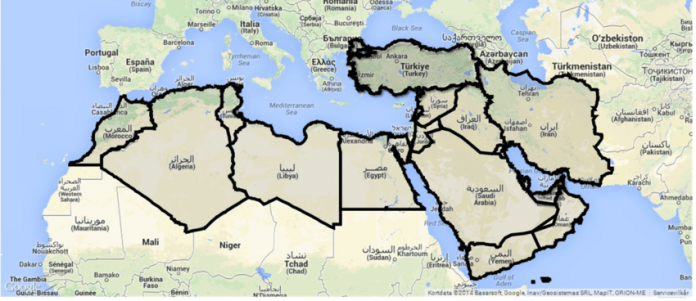Somali Magazine October 17, 2023- A World Bank report reveals that economies within the Middle East and North Africa (MENA) are grappling with a number of challenges attributable to the adverse impact of global economic upheavals.
As a result of the sequence of these global shocks, the human toll on the livelihoods of the people of MENA has been devastating. There has been a broad-based loss of jobs, unemployment, and inflation all leading to extreme deterioration of the quality of life in this region.
“The far-reaching consequences of the global shocks reverberated within the MENA region, where job losses and salary cuts became commonplace. In many households, income levels either dwindled considerably or, at the most severe end of the spectrum, disappeared entirely. “The macroeconomic shocks of 2020-22 led to an additional 5.1 million individuals becoming unemployed in MENA,” the World Bank finding states.
Moreover, as household incomes dwindled or faced reductions, the cost of living went up. This was driven by factors such as food inflation, escalating energy expenses, and rising interest rates.
To compound matters, as policymakers endeavored to adapt to the new realities posed by the global shocks through fiscal and monetary measures like currency depreciations, citizens witnessed the diminishing value of the limited funds they had left.
For many in these countries, their livelihoods have been caught in the crossfire of inflationary pressures linked to currency fluctuations.
Economic experts at the World Bank and other global lenders cite what they refer to as “trade-offs” confronting labour markets in the MENA region as leaders grapple with multiple macroeconomic shocks.
One pivotal trade-off pertains to the balance between job losses and diminishing real incomes. This situation advocates for adaptable real wages and policy options centered around the well-being of the most vulnerable in society.
Way forward for MENA region
In the face of these global economic shocks, policymakers in the MENA region must mitigate their severe impact on the most vulnerable. While the harm is already done, the crucial question is whether these repercussions will result in enduring scars and permanently reshape the fate of the MENA population.
The World Bank provides insight into this inquiry, asserting that the lasting and potentially fatal nature of the damage hinges on the actions taken by MENA leaders today.
Termed a ‘Balancing Act,’ the World Bank’s Economic Update for the MENA region delves into the enduring consequences of even temporary macroeconomic shocks.
“The report highlights the human side of the macroeconomic uncertainty that is currently permeating the global economy and, particularly, the MENA region,” explains Ferid Belhaj, the World Bank Vice President MENA region and author of the report.
The report also signals a significant growth slowdown in the MENA region for 2023, with distinct patterns among oil exporters and importers.
It distinguishes between developing oil exporters and importers, projecting a higher growth rate of 3.6 percent for importers compared to 2.4 percent for exporters in 2023.
Evidently, the well-being of people in both MENA segments hinges on a straightforward factor: increased household income, or growth in income per capita. Unfortunately, the outlook is bleak, as the report warns that income per capita in the MENA region will decelerate from 4.3 per cent in 2022 to a mere 0.4 per cent in 2023.

